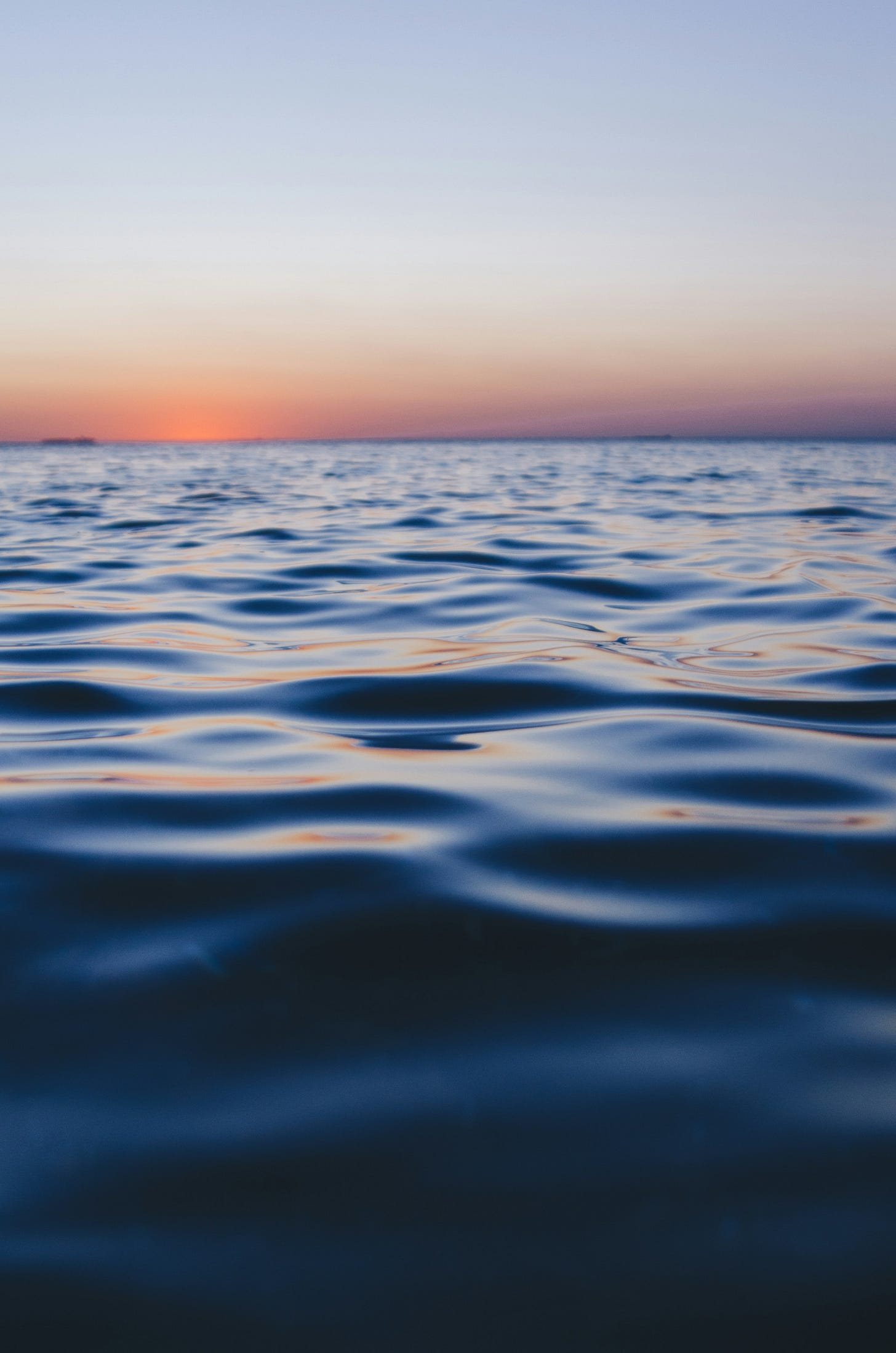Needles in the Ocean
The shifting frontiers of refuge
THERE ARE MANY OLD TALES about mysterious beasts who live below the surface of the water, deep in the belly of the ocean. There have always been things to fear, in that deep water. And yet despite this—perhaps even because of this—the ocean has also always been an exhilarating destination. There’s no other feeling like the one you have at the edge of the ocean, your feet sinking into the rocky sand, the waves lapping at you with their own tidal rhythm, the salty air sticking to your face and hair, the birds calling out toward the unstable horizon. That line of encounter between land and sea is singular, and powerful. It’s a line of encounter that calls to pilgrims, dreamers, wanderers, and people looking for something like an escape.
Last week, sorting through the headlines, one of them caught my eye and sent me into a bit of a downward spiral. A slew of medical waste, including a massive number of used hypodermic needles, washed onto the shores of beaches on the Atlantic coast from Virginia, to the Assateague Island National Seashore, and as far north as Delaware. The weather was still warm, and thousands of people were gathered on those beaches when the needles washed up. As I write this, it’s still not entirely clear where the biohazards came from, but they did shut the beaches down.
It’s not as if this news was uniquely bad, or scary, or dystopian. It’s not the first time that something like this has happened. And there are a lot of horrifying things happening all over the world right now, from hurricanes and flash floods, to assault rifles firing in Alabama, to communication devices exploding in Lebanon grocery stores. There are so many places in the world where people are seeking some sort of refuge from the unthinkable violence, or just the chaos and disorder, around them. I suppose what hit me hardest about the hellish image of needles in the ocean was how it underscored the impossibility of refuge. So many spaces of refuge and escape have evaporated, eroded, been settled, occupied, developed.
No matter how many times I remind myself of the fact that nature isn’t what the romantic little child in my heart so badly wants it to be, the child in my heart nevertheless wants to believe that nature has always harbored spaces of refuge. And the ocean is one of them. The child in my heart is stubborn, and full of desire, and refuses to surrender the vision of a nature who sometimes reaches out and offers us shade. But there is also a lot of bitter disappointment there, in my heart, where that child lives. So much of the water on our planet has been poisoned. Water becomes less of a salve and more an assault. I try to remind the little child that nature has always been more complicated than we’ve been willing to imagine.
I remind the child, but she doesn’t listen. As she mourns for the people who are living and dying in the midst of incredible violence and chaos, she mourns other things too. She mourns the loss of a dream, the loss of a more than human refuge that—perhaps—never existed in the first place.
THE NEEDLES IN THE OCEAN also made me think about hell. I’ve been thinking a lot about underworlds, of course, for one of my new book projects. One of things I’ve pondered is why (and how, and when) the underworld stopped being a hell. Over the course of modernity—as we’ve explored and investigated it—the underworld has become less hellish. Part of this, of course, is related to the fact that this world—this middle earth—has become more hellish. We know that the horrific things happening here are, often, worse than what was promised in hell.
On a planet that looks increasingly like hell—where the ocean washes dirty needles onto its sandy shores—the powers of the underworld look different. The underworld looks less like a hell, and more like an escape.
The ultra-wealthy, of course, realized this long ago. Those who can afford to build luxury bunkers below the surface of this middle earth have been indulging their dreams of escape to the underworld. Those of us who can’t afford it still dream of this escape, but in different ways. Perhaps we’re just trying to immerse ourselves in a sense of deep time: so deep it feels like it can spirit us away, so deep it might as well be eternal. We all seek out our own sort of inoculation.
But what if it’s not a dream of escape? What if the landscape of the underworld harbors some other imaginary? Maybe something like a pathway, for that child in our hearts? What if it’s a sense that there’s some refuge there, in the belly of the earth? What if we seek out the mysteries of the underworld because we sense that refuge itself has changed? The way that we still sought out our mother for comfort, even when we knew she couldn’t really protect us from anything at all. Because we knew that she would listen, more closely and carefully than anyone else would. What if that’s what we’ve gone looking for, down there?



